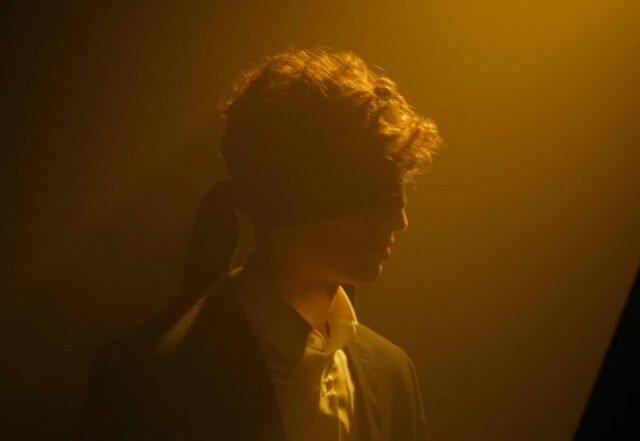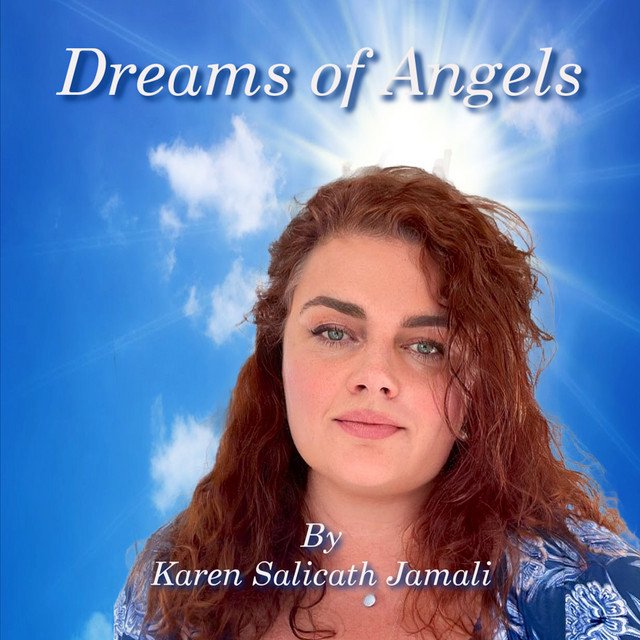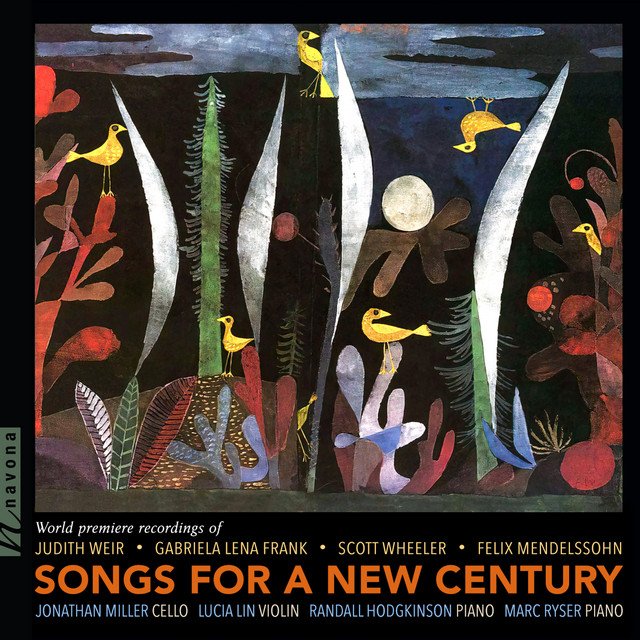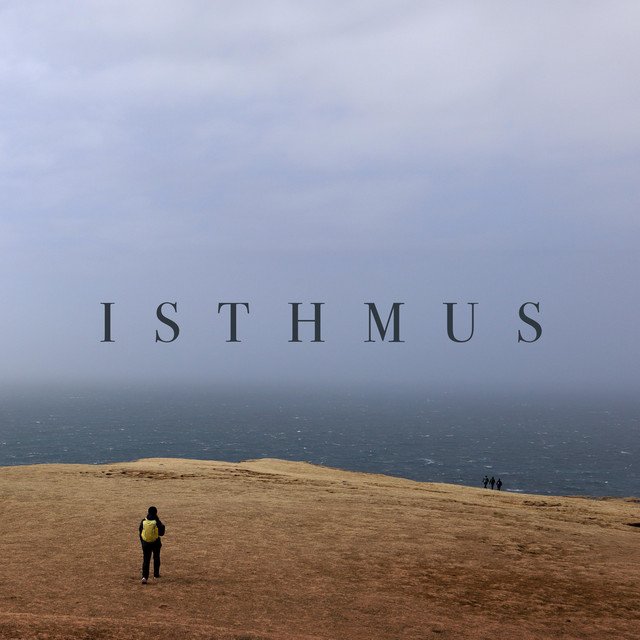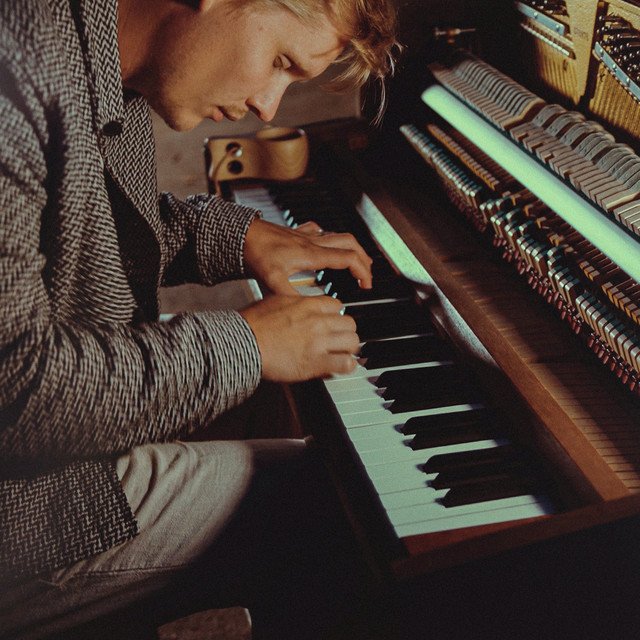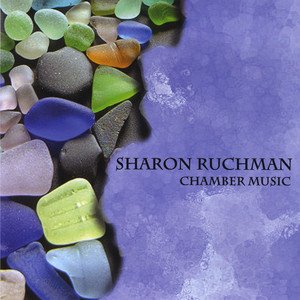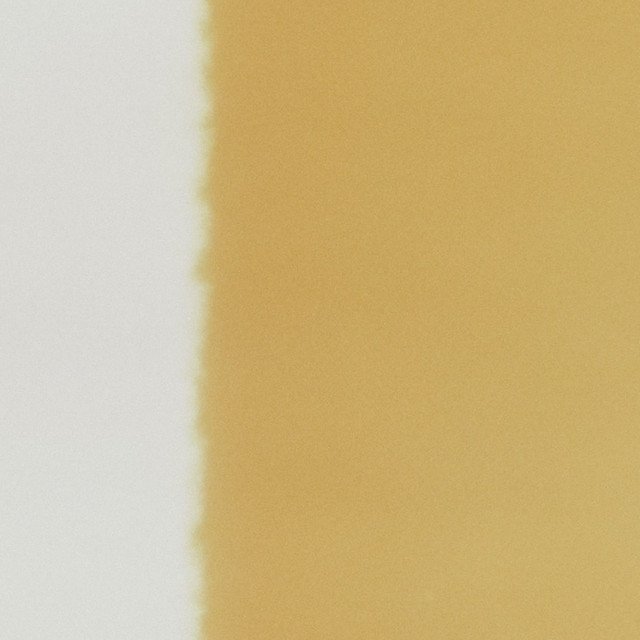Neoclassical Music ⁞ New Releases⁞ Artist Interviews⁞ Music News
Introduction of Neoclassical Music
Neoclassical music is a style of classical music that is characterized by its use of traditional forms and styles, as well as a focus on structure and balance. It is often seen as a reaction against the romantic style of music, which was characterized by emotion and passion, and was influenced by the ideas of the Enlightenment, which valued reason and classical learning.
Some of the key features of neoclassical music include the use of traditional forms such as sonata form, the use of clear and concise melodies, and the incorporation of elements of folk music and popular music. Neoclassical music also often featured a return to tonality, which is the use of a specific key or tonal center in a piece of music.
The neoclassical style has had a lasting influence on classical music, and it continues to be an important part of the classical repertoire
Favorite Neoclassical Music on Spotify
Favorite Neoclassical Videos on Youtube
Recent Neoclassical Interviews
Christoph Sebastian Pabst Interview on Nagamag.com
Christoph Sebastian Pabst
Interview
Nagamag:
What are the genres that describe better your music style?
Christoph Sebastian Pabst:
Chillout, Ambient, Electronic, Deephouse
Nagamag:
Few words about your musical background and career?
Christoph Sebastian Pabst:
I started in 1992 with an Amiga 500, the 4-track music program Octamed and an 8-bit sequencer! Bit by bit new elements were added, a Korg 01w / FD, an Atari computer was needed for the first Cubase, later a PC, in 1998 I had a real studio with many analog synthesizers, one of the first digital mixing consoles, Akai samplers and so on. Back then, I had done a lot of music with a friend and later a DJ from Bremen, house and techno. When I first moved to Heidelberg 2001, I no longer had the space for a studio and gradually sold everything and only had a PC, a master keyboard and speakers. Because of my medical studies I had less and less time for music, that was in Marburg, where I also met my current colleague Thomas Lemmer. Many years later I sent him a few tracks and our first song Pastelstrand was released on his album pure! After that we released our first EPs and album together. We also got great remixes for the EPs. We are currently working on our second album and I am really looking forward to the next release! stay tuned, it's worth it!
Nagamag:
Do you remember your first connection of love to music that was the right impact to be a music artist now?
Christoph Sebastian Pabst:
I first love to electronic music was like written bevor the Amiga 500! Before that I had no real music style and I mostly heard charts. It was great to experiment and to experience electronic music in every detail. Jean michel jarre was my role idol.
Nagamag:
Did you make money with music?
Christoph Sebastian Pabst:
Yes, of course, a fraction of a cent per stream. Last year I earned almost a few euros! :-) still nothing to live on. But music should primarily make people happy, when money is added it is nice but not important.
Nagamag:
Most artists have a favorite song from a different music genre than the one they are producing music for... Which is yours?
Christoph Sebastian Pabst:
Vangelis "Conquest of Paradise"
Nagamag:
Of Course Nagamag would love to listen also which track from a similar artist you admire?
Christoph Sebastian Pabst:
Thomas Newman "Any other Name"
Pedro Meirelles Interview on Nagamag.com
Pedro Meirelles
Interview
Nagamag:
What are the genres that describe better your music style?
Pedro Meirelles:
Contemporary Classical, Minimalist Classical, Brazilian Classical
Nagamag:
Few words about your musical background and career?
Pedro Meirelles:
I’m a composer/producer from Rio de Janeiro, Brazil. I’ve loved classical music and rock my whole life, so, besides composing and producing my solo instrumental catalogue throughout the years as an independent artist, I’ve also worked at different projects with names from the rock world such as Andrew Scheps (Rick Rubin), Serj Tankian (System of a Down) and Gogol Bordello.
Nagamag:
Do you remember your first connection of love to music that was the right impact to be a music artist now?
Pedro Meirelles:
Yes, getting in touch with the score of the movie “The Adventures of Chatran”, by Japanese composer Ryuichi Sakamoto, which I listened to for the first time when I was around 4. At the time, I got so obsessed with the film because of its beautiful and hypnotic synth music that I wanted to go watch it over and over again at the theater.
Nagamag:
Most artists have a favorite song from a different music genre than the one they are producing music for... Which is yours?
Pedro Meirelles:
Nirvana "Lithium"
Nagamag:
Of Course Nagamag would love to listen also which track from a similar artist you admire?
Pedro Meirelles:
Philip Glass "Vanessa and the Changelings"
Neoclassical Features
Fares Nsouli – Blue Cradle (Marco’s Version) | Neoclassical music review
“Когда слышишь звуки фортепиано в исполнении -Fares Nsouli-, такие нежные, чувственные и, кажется, недосягаемые для большинства, словно пришедшие из другого мира, то поражаешься тому, насколько много эмоций они возрождают в подсознании. Понимаешь, что внутри тебя зарождается жизнь и все то, что раньше тревожило больше не имеет никакого значения. Все только начинается.”
-Nagamag.com
Expand to read review translations *
“When you hear the piano sounds performed by -Fares Nsouli-, so tender, sensual and, it seems, inaccessible to most, as if coming from another world, you are amazed at how many emotions they revive in the subconscious. You understand that life is born inside you and everything that used to worry you no longer matters. It’s only begining.”
-Nagamag.com
“Quand on entend les sons du piano interprétés par -Fares Nsouli-, si tendres, sensuels et, semble-t-il, inaccessibles au plus grand nombre, comme s’ils venaient d’un autre monde, on est étonné de voir combien d’émotions ils ravivent dans l’inconscient. Vous comprenez que la vie est née en vous et que tout ce qui vous inquiétait n’a plus d’importance. Cela ne fait que commencer.”
-Nagamag.com
The original review of “Fares Nsouli – Blue Cradle (Marco’s Version)” is written in the native language that is spoken by the dedicated, for this song, Nagamag’s Neoclassical reviewer and followed by two translations*, of which the one depends from the country of origin of the artist “Fares Nsouli” (Belgium) and the other one is translated to a different language than original review and the country of origin of the artist.
* Automatically Translated
Nagamag unveils the mesmerizing composition “Blue Cradle – Marco’s Version”, an extraordinary creation of harmony and creativity that “Fares Nsouli” offered to all of us. A Neoclassical song, which evoked an emotional voyage to our curator that desired to write down a unique review for “Fares Nsouli – Blue Cradle (Marco’s Version)”. What also sets this song among the featured choices of Nagamag is the way that “Blue Cradle – Marco’s Version” is enriched with Piano characteristics. “Fares Nsouli – Blue Cradle (Marco’s Version)” is a rich music creation that deserves to be listened to again and again. Nagamag is honored to share this detailed music review by one of our experienced reviewers for Neoclassical music compositions. As always, Nagamag keeps up evaluating Neoclassical songs from across the globe, ensuring that all Neoclassical enthusiasts around the world have access to these auditory treasures .
Neoclassical home page where “Fares Nsouli – Blue Cradle (Marco’s Version)” is hosted on Nagamag Music Magazine
Nagamag takes pride in supporting Neoclassical artists like “Fares Nsouli”, providing music reviews and music discoveries like “Blue Cradle – Marco’s Version”.
This music post about song “Blue Cradle – Marco’s Version” by “Fares Nsouli” is hosted in Neoclassical page on Nagamag.
There you can find similar Neoclassical artists to “Fares Nsouli” and more Neoclassical, Piano songs like “Blue Cradle – Marco’s Version” that have been carefully selected by Nagamag’s Neoclassical experienced curators and reviewed by Nagamag’s Neoclassical dedicated reviewers.
Learn everything about Neoclassical on Wikipedia
If you enjoyed “Fares Nsouli – Blue Cradle (Marco’s Version)” but you have never listened before to any other Neoclassical song or you are interested in learning more about Neoclassical music gerne then click here to visit Neoclassical music page on Wikipedia.
Neoclassical music refers to a distinct style with common characteristics. Each genre carries its unique sound, instruments, and cultural influences. For a deeper understanding of Neoclassical music, Wikipedia provides comprehensive insights into its history, notable artists, and iconic works. Delve into the diverse and dynamic world of Neoclassical music through this valuable resource, broadening your knowledge around Neoclassical genre.
Davide Anniballi – Alearda in D Major | Neoclassical music review
“Η ευτυχία μοιάζει να ξεπηδά μέσα από τις νότες αυτής της μελωδίας. Η μαγεία σκορπίζεται παντού και όλα τώρα φαίνονται πιο όμορφα. Οι άσχημες σκέψεις χάνονται και τη θέση τους παίρνει ένας φωτεινός καταγάλανος ουρανός μέσα στο μυαλό. Ο ρυθμός δεν σταματά να μας ρίχνει τη χρυσόσκονη της χαράς και νιώθουμε το πρωινό μας ξύπνημα να παίρνει το πιο αξιόλογο νόημα.”
-Nagamag.com
Expand to read review translations *
“Happiness seems to spring from the notes of this melody. Magic spreads everywhere and everything now looks more beautiful. Bad thoughts disappear and are replaced by a bright blue sky inside the mind. The rhythm does not stop throwing us the gold dust of joy and we feel our morning awakening takes on the most worthy meaning.”
-Nagamag.com
“La felicità sembra scaturire dalle note di questa melodia. La magia si diffonde ovunque e tutto ora sembra più bello. I cattivi pensieri scompaiono e vengono sostituiti da un cielo azzurro brillante nella mente. Il ritmo non smette di gettarci la polvere d’oro della gioia e sentiamo che il nostro risveglio mattutino assume il significato più degno.”
-Nagamag.com
The original review of “Davide Anniballi – Alearda in D Major” is written in the native language that is spoken by the dedicated, for this song, Nagamag’s Neoclassical reviewer and followed by two translations*, of which the one depends from the country of origin of the artist “Davide Anniballi
“ (Italy) and the other one is translated to a different language than original review and the country of origin of the artist.
* Automatically Translated
Nagamag unveils the mesmerizing composition “Alearda in D Major”, an extraordinary creation of harmony and creativity that “Davide Anniballi
“ offered to all of us. A Neoclassical song, which evoked an emotional voyage to our curator that desired to write down a unique review for “Davide Anniballi – Alearda in D Major”. What also sets this song among the featured choices of Nagamag is the way that “Alearda in D Major” is enriched with Cinematic characteristics. “Davide Anniballi – Alearda in D Major” is a rich music creation that deserves to be listened to again and again. Nagamag is honored to share this detailed music review by one of our experienced reviewers for Neoclassical music compositions. As always, Nagamag keeps up evaluating Neoclassical songs from across the globe, ensuring that all Neoclassical enthusiasts around the world have access to these auditory treasures .
Neoclassical home page where “Davide Anniballi – Alearda in D Major” is hosted on Nagamag Music Magazine
Nagamag takes pride in supporting Neoclassical artists like “Davide Anniballi
“, providing music reviews and music discoveries like “Alearda in D Major”.
This music post about song “Alearda in D Major” by “Davide Anniballi
“ is hosted in Neoclassical page on Nagamag.
There you can find similar Neoclassical artists to “Davide Anniballi
“ and more Neoclassical, Cinematic songs like “Alearda in D Major” that have been carefully selected by Nagamag’s Neoclassical experienced curators and reviewed by Nagamag’s Neoclassical dedicated reviewers.
Learn everything about Neoclassical on Wikipedia
If you enjoyed “Davide Anniballi – Alearda in D Major” but you have never listened before to any other Neoclassical song or you are interested in learning more about Neoclassical music gerne then click here to visit Neoclassical music page on Wikipedia.
Neoclassical music refers to a distinct style with common characteristics. Each genre carries its unique sound, instruments, and cultural influences. For a deeper understanding of Neoclassical music, Wikipedia provides comprehensive insights into its history, notable artists, and iconic works. Delve into the diverse and dynamic world of Neoclassical music through this valuable resource, broadening your knowledge around Neoclassical genre.
Latest Neoclassical discoveries
Angel Gabriels Heart – Karen Salicath
Мелодия пиано исполненная так чувственно и с ноткой нежности, что прекрасно сочетается с общим настроением композиции. Подобн... >>> Read full review & listen to the song on Nagamag #piano #nagamag #musicmagazine #musicreview #review
Song Without Words, Op. 109 – Jonathan Miller x Marc Ryser
Τίποτα δεν μπορεί να χαλάσει αυτή την ησυχία της μελωδίας. Ακόμα κι αν η θλίψη φουντώνει μέσα μου τίποτα προς τα έξω δεν θα φ... >>> Read full review & listen to the song on Nagamag #cinematic #epicmusic #traditionalclassical #jonathanmillerxmarcryser #jonathanmillerxmarcryser #unitedstates #nagamag #musicmagazine #musicreview #review
Approaching Midnight – Arttu Silvast
Σε ένα μοναδικά γαλήνιο τοπίο βρίσκω τον εαυτό μου. Οι ήχοι και τα βουητά της πόλης είναι πολύ μακριά. Μόνο οι νότες του πιάν... >>> Read full review & listen to the song on Nagamag #neo #modernclassical #arttusilvast #finland #nagamag #musicmagazine #musicreview #review
Keskiyön Valssi – A. Blomqvist
Οι νότες του πιάνου μιλούν κατευθείαν στην καρδιά μου. Κάνω ένα βήμα πίσω και δυο μπροστά. Οι δισταγμοί και οι αναστολές σβήν... >>> Read full review & listen to the song on Nagamag #neo #modernclassical #solopiano #ablomqvist #finland #nagamag #musicmagazine #musicreview #review
Awakening: II. – Sharon Ruchman
Μέσα από την θλιμμένη και νοσταλγική μελωδία συναντώ την ομορφιά της μοναξιάς. Οι νότες του βιολιού με αφήνουν να κλάψω και ν... >>> Read full review & listen to the song on Nagamag #neo #modernclassical #traditionalclassical #sharonruchman #unitedstates #nagamag #musicmagazine #musicreview #review
Too Late – George Licheli
Музыка — это язык, который способен передать чувства, не требуя слов. Неоклассическая композиция -Too Late- является ярким пр... >>> Read full review & listen to the song on Nagamag #cinematic #epicmusic #georgelicheli #nagamag #musicmagazine #musicreview #review
Birds – Martin Martyn
Τα όμορφα τιτιβίσματα των πουλιών ξεπηδούν μέσα από τις υπέροχες νότες του πιάνου και σαν ένα γαλήνιο πρωινό η μελωδία ζωγραφ... >>> Read full review & listen to the song on Nagamag #neo #modernclassical #martinmartyn #japan #nagamag #musicmagazine #musicreview #review
Leon – Pavel Gross Dneprov
Melancholic and very emotional atmosphere, perfectly capturing its title. Beautiful and playful dynamic of the composition is... >>> Read full review & listen to the song on Nagamag #cinematic #nagamag #musicmagazine #musicreview #review
Fading Memories – Matthias Krauss
Serene and very beautiful ethereal melodies and gentle piano textures with this enchanting and soothing composition. Its harm... >>> Read full review & listen to the song on Nagamag #neo #modernclassical #solopiano #matthiaskrauss #germany #nagamag #musicmagazine #musicreview #review
Difference between Classical and Neoclassical Music
Classical music refers to a broad range of music written in the classical tradition, which encompasses a wide range of styles and forms. It is generally characterized by its formal structure and its use of traditional instruments and ensemble configurations.
Neoclassicism is a style of music that refers to the revival and use of classical forms and styles in music, particularly in the 18th and early 19th centuries. It is characterized by its use of clear, concise forms and a focus on structure and balance. Neoclassicism was a reaction against the romantic style of music, which was characterized by emotion and passion, and was influenced by the ideas of the Enlightenment, which valued reason and classical learning.
Some of the key differences between classical and neoclassical music include:
Time period: Classical music refers to music written during the classical period (1730-1820), while neoclassicism refers to music written after the classical period that incorporates elements of classical forms and styles.
Emphasis on structure: Classical music is known for its formal structure and the use of traditional forms such as the sonata and the symphony. Neoclassical music also places a strong emphasis on structure, but may also incorporate elements of popular music and folk music.
Emphasis on emotion: Classical music is often more reserved and formal in its emotional expression, while neoclassicism tends to be more emotional and expressive.
Use of tonality: Both classical and neoclassical music use tonality, but neoclassicism often incorporates a wider range of tonal structures and may experiment with atonality.
Use of traditional instruments: Both classical and neoclassical music use traditional classical instruments such as strings, woodwinds, brass, and percussion. However, neoclassicism may also incorporate elements of popular music and folk music, and may use a wider range of instruments.
Overall, the main difference between classical and neoclassical music is the time period in which the music was written, and the specific techniques and styles used by the composer. Classical music is generally more formal and reserved in its expression, while neoclassicism tends to be more expressive and may incorporate elements of popular music and folk music.
The most used instruments in Neoclassical Music
In neoclassical music, the most common instruments used are those found in the classical orchestra, including:
Strings: Violin, viola, cello, double bass
Woodwinds: Flute, oboe, clarinet, bassoon
Brass: Trumpet, French horn, trombone, tuba
Percussion: Timpani, snare drum, bass drum, cymbals, xylophone, marimba, triangle
Keyboard: Piano, harpsichord
These instruments are often used to create a wide range of textures and sounds, and are featured in many different types of classical music, including neoclassical music. In addition to these instruments, many composers also incorporate elements of popular music and folk music into their compositions, and may use a variety of other instruments such as guitars, bass, drums, and synthesizers.
It’s also worth noting that many composers and performers of neoclassical music are skilled in a variety of different instruments, and may switch between different instruments in order to achieve the desired sound and texture.
Vocals are sometimes used in neoclassical music, although they are not as common as instrumental music. When vocals are used in neoclassical music, they are typically performed by trained classical singers who have the ability to sing with precise pitch and control.
One common use of vocals in neoclassical music is in operatic compositions, where singers perform arias and recitatives in a style that is similar to traditional opera. Neoclassical opera is a subgenre of classical music that combines elements of traditional opera with elements of neoclassicism, and often incorporates elements of popular music and folk music.
In addition to operatic vocals, vocals may also be used in other forms of neoclassical music, such as choral music or vocal chamber music. Some composers may also incorporate elements of popular music or folk music into their compositions, and may use vocals in a more modern or experimental style.
It’s worth noting that the use of vocals in neoclassical music is highly dependent on the individual composer and the specific piece of music, and not all neoclassical compositions will feature vocals.



